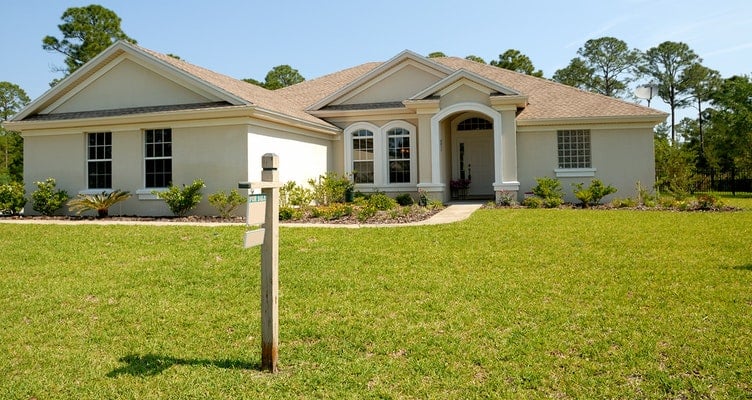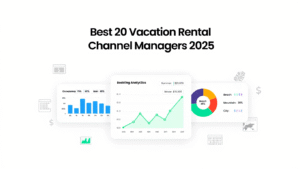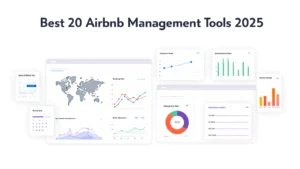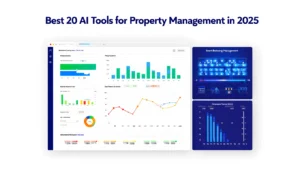If you are taking the first step towards investing in property, you might not be familiar with the all the terms used.
Although many terms are used in everyday house purchasing, some terms and abbreviations you encounter may be entirely new to first time investors, and it can get more than a little confusing.
To help you out a little, here we have broken down some of the most popular UK property investment terminologies, and what they mean, to make you feel more comfortable reading through investment documents and brochures.
Below Market Value
Properties offered below the prices of what similar properties were sold at in the area. These often seem like great deals on the face of it, but the chances are that there are ‘catches’ that will explain the lower price. It’s crucial you find out what those are before you buy.
Buy To Let Investments
This is where you purchase and let out a residential house, typically to professionals. Rental yields are generally lower than what a commercial property would achieve, but there is more potential for capital growth. You will be liable for maintaining the house, including general maintenance and tenancies, unless a management company is in place.
Until COVID-19 hit buy to let was becoming very popular with those hoping to ‘cash in’ on the popularity of Airbnb. The bottom has pretty much dropped out of that market in 2020 – at least for now – so think very carefully before making that your plan right now and investigate more traditional buy to let scenarios instead.
Capital Growth
The monetary figure that reflects how much a purchased property rises in value. There is the opportunity for some assets to generate more capital growth than others. The level of regeneration in the city, improving transport links and job opportunities, and overflows from people priced out of the surrounding areas can be major influencing factors.
Care Home Investments
Investing in a unit or room in a care home. A care home provider typically has a 25-year contract with the property owner of the care home. In essence, the company operates its business from the premises rented out by the owner.
The whole day-to-day operation of a whole care home company is fully taken care of and under a commercial contract you will earn a guaranteed rental return. These are hands-off investments, and Britain’s aging population underpins demand. These are typically cash only investments though.
Commercial Property Investment
The term commercial property broadly refers to property that is used for business purposes. The term, however, also covers larger housing projects, such as student residences, care homes, and hotels. There are five main business property types, and they are: offices, retail, manufacturing, leisure and healthcare units.
Council Taxes
Local taxes on private property in England, Scotland , and Wales. In general, the tenant is liable for payment of council tax, unless the property is an HMO, in which case the landlord is liable. Students are excluded from council tax and it does not extend to care facilities, which suggests that it is possible to generate higher returns from those kinds of property investments than from domestic, family type homes or flats.
Property Investment Crowdfunding
This is a newer concept that has become popular over the last ten years or so. Crowdfunding refers to property investment funding by a large group of individuals that is typically carried out online. For instance, 100 or so individuals might club together to buy a property and get a share of the rental yields and the capital growth.
This can be a great way to get into property investment with less cash, but you do have to be very careful, as crowdfunding property investments are ripe territory for scammers.
Property Investment Diversification
To mitigate exposure to market fluctuations, property investment diversification is the art of investing in a variety of properties. It’s something that many experts advise you do as you build your portfolio.
Freehold
Owning the property and the land it sits on. Freehold confuses a lot of people, even those who are only buying a single property for their own enjoyment and not as an investment.
In very basic terms, properties may either be leasehold or freehold in the UK. Leasehold means that for so many years you have the right to live on the property, but you still do not own it. Freehold means that you own the land itself, which has its benefits, but also comes with additional duties.
It means you are absolutely in charge of everything, what happens to it and how it is used when you purchase a freehold property (unlike leaseholders, who need the freeholder ‘s permission to do certain things).
It’s still up to you (though leaseholders also have to pay towards it) to carry out any repairs or maintenance.
Things can get even more complicated sometimes too. For example, with some flats, along with your lease, you get a ‘freehold share.’ That means there’s no ground rent or maintenance costs to pay, and there’s no concern about running out of your lease.
In terms of the upkeep of the building and property, you will have more say. But when it comes to scheduling maintenance work and paying for it, you may find yourself at loggerheads with the other leaseholders.
Commonhold is like a share of freehold, but usually means that freeholders are all the other leaseholders in the house. Together, you own the freehold for the building and will collectively determine when and how you will share maintenance costs.
Then there is sometimes flying and creeping to consider. Not literally, but in terms of freehold.
For parts of the property that are owned by one person, but overlap with another, flying and creeping freeholds apply. A balcony that juts out over another property (flying), for instance, or a cellar that sits below it (creeping).
Needless to say, problems often arise with this kind of setup. Even if there’s a clear freeholder, others will be affected by whatever they do to that portion of the land.
Gross Rental Yield
Gross rental yield is, before expenses related to the property (e.g. mortgage) have been deducted, the amount of money a landlord or creditor makes on a property. It’s typically presented as a percentage figure and you’ll see it often in property listings.
Ground Rent
An annual rent that the leaseholder pays to the freeholder for the land on which the property lies.
High Net Worth Investor
In the UK, an investor with a high net worth is defined as anyone with an annual income of £100,000 or more or with net assets of £250,000 or more. It’s a status most property investors aspire to achieve.
HMO
In the world of real estate, HMO means house in multiple occupation. It’s a property that is rented out to three or more non-family individuals who are not part of a ‘real’ household but share some of the facilities of the home, such as the kitchen and bathroom. It is otherwise referred to as a house share or a flat share.
HMO License
If a landlord in England or Wales wants to rent a property as an HMO, they will need to verify whether they need an HMO license. This is a must if five or more people inhabit the house and at least one occupant pays rent.
An HMO license is valid for a period of not more than five years and costs £1,100. The license is intended to ensure that the house is fit for purpose.
The council requires landlords to apply certificates of electrical safety and gas safety and to install fire alarms on the premises. Of course, it is an added expense, and many individuals have begun to step away from buy to let and are shifting to other property investments that are not subject to the same licensing and regulations.
Leasehold
The customary form of ownership used for flats and apartments in the UK is leasehold.
Usually, the freeholder extends a lease to the leaseholder for between 125 and 250 years. The land belongs to the freeholder himself. The apartment/flat is owned by the leaseholder. The granting of a lease extension may not be withheld by the freeholder.
There is a standard lease extension calculation that will be provided by a chartered surveyor according to the criteria set by the government. The freeholder will usually be responsible for the maintenance of the building.
LTV
LTV stands for loan to value ratio and, as the name suggests it’s a loan’s ratio to the value of the property. For instance, if your property costs £100,000 and you take out a loan of £80,000 on it, it will be an 80% loan to value.
Net Rental Yield
Once all fees have been withdrawn in relation to the property (e.g. mortgage), the net rental yield is the amount of money an owner earns on the property from rent.
It is presented as a percentage figure, determined by taking a property ‘s annual rental revenue and dividing it by the price of the property. To understand the potential, investors should compare the rental yields obtained from similar properties in the area.
NRL1
A form for a non-resident landlord to complete. If a landlord typically resides outside the UK, an NRL1 form can be completed to ensure that the money they make in the UK on their property investments is not taxed in the UK. In the landlord’s home country, the revenue may be subject to tax.
Off Plan
Purchasing off-plan means purchasing a property prior to its completion. Off-plan investment assets tend to have payment arrangements in place where investors will pay in installment payments. This will make finances more manageable for someone who currently does not have enough capital for more traditional property investments in completed structures.
PBSA
In this instance PBSA refers to Purpose-built student accommodation. Private developers have designed accommodation for students and then put them up for sale to investors. These are typically either self-contained studio dewllings designed around clusters of shared living areas, or more typical residence halls consisting of en-suite bedrooms and shared kitchens.
Real Estate Portfolio
It is referred to as a real estate portfolio if an investor holds multiple assets.
Service Charge
A fee levied by the freeholder on the leaseholder in order to maintain the property and conduct basic repairs. This may include heating and lighting in communal areas, maintenance of communal gardens and maintenance of lifts and shared staircases.
Stamp Duty
Stamp duty is something else new real estate investors tend to get very confused about. In the United Kingdom, stamp duty is charged if someone buys a home, flat, land or building over a fixed price.
For first time buyers whose purchase is less than £300,000, it is not applicable. For first-time buyers whose house is priced from £300,001 and £500,000, stamp duty is 5 percent.
Those buying a second, or subequent property – those building a real estate investment portfolio – have to pay an additional 3% on top of the standard stamp duty rate. So, for example, if you are buying a £400,000 property you will be asssesed a stamp duty of 8%.
Student Property Investments
These are often in the form of HMOs for students or purpose-built student housing. HMOS are residential buildings that have been repurposed to serve students. Each student will have their own bedroom, but will share other facilities, such as a kitchen or bathroom.
Owning this type of property has certain advantages. It can be sold on to a residential buyer who wants to make it their own home or as a buy to let. This suggests that, since there is a bigger market to sell to, there is more potential for capital growth.
If an investor wishes to purchase a student HMO, they will be expected to keep it up to standard. This means that new tenancies would have to be organized and any and all essential repairs performed. To increase rental yields, if they want to purchase a cheaper home, they would have to be conscious of how much they would need to pay to get it up to standard.
Purpose-built student accommodation is designed for students. With more high-spec equipment, it’s also newer. A management company manages the development, so investors do not need to worry about sorting out repairs or new tenancies.
They will also not have to account for occupancy discrepancies as the management firm handles this. However, developers will have to pay the management firm an annual fee, and units cannot be repurposed for residential use, so the market for resale is usually more limited.





